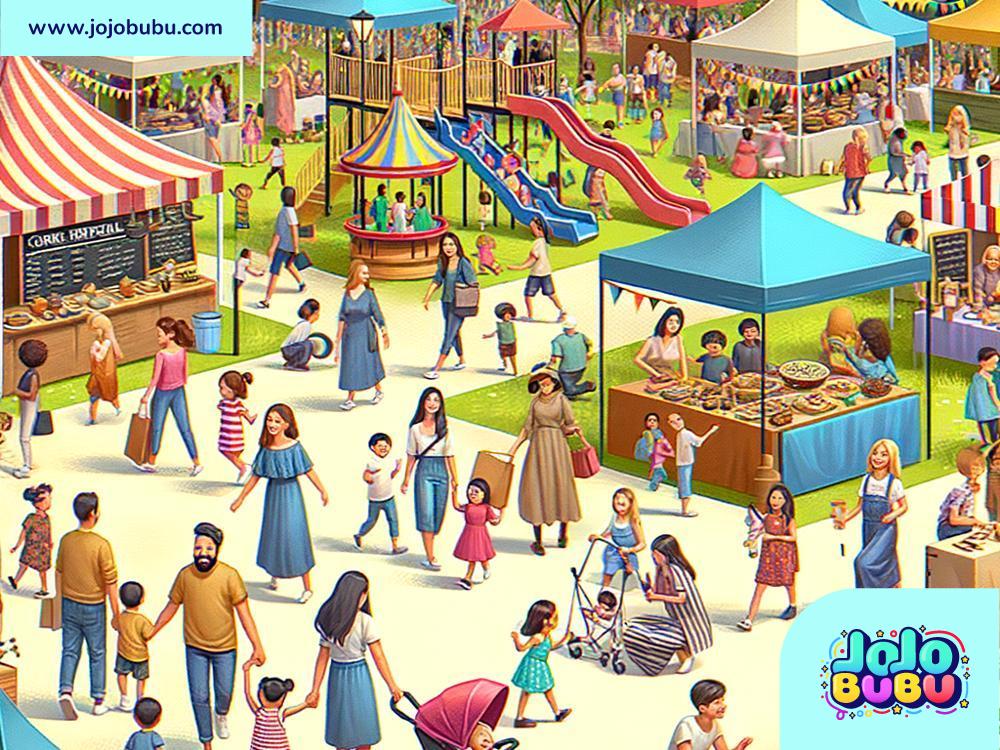Family Involvement in Community Events: Building Bonds and Creating Memories
Community events are the heartbeat of the places we live. They are moments when people come together to celebrate, support, learn, or simply have fun as a group. These events can range from local festivals and clean-up drives to school fundraisers and sporting competitions. While they’re enjoyable for everyone, they become even more meaningful when families participate. Family involvement in community events brings a sense of unity and strengthens the bonds between individuals—but more importantly, these experiences create lifelong benefits. Let’s explore how and why families should get involved in community activities.
Why Family Involvement Matters
-
Strengthening Family Bonds Time spent together as a family is valuable. Participating in community events lets family members work as a team while building memories. Whether it’s planting trees in a local park, cheering at a charity walk, or making crafts at a farmers’ market, these shared activities teach cooperation while encouraging laughter and joy.
-
Creating a Sense of Belonging Families who take part in local events often feel more connected to their neighborhoods. Community events show children how they are part of something bigger than just their home. Parents benefit, too—meeting other families and making friends helps everyone feel rooted in their area.
-
Role Modeling Community Values Parents play an important role as role models for their children. Joining community activities together lets children see firsthand the importance of giving back, supporting others, and caring about their surroundings. These values stay with children and can influence how they act long into the future.
-
Encouraging Personal Growth Participating in events allows both adults and kids to learn new skills. Whether it’s helping organize a fundraiser, participating in a talent show, or volunteering to lead a group activity, family members can push themselves out of their comfort zones. This builds confidence and teaches invaluable lessons about teamwork and responsibility.
Types of Community Events for Families
Communities offer various activities that cater to families. Choosing events that match your family’s interests can make participation more enjoyable. Here are some examples:
-
Festivals and Cultural Celebrations Local festivals showcasing food, music, and traditions are perfect for families. Parents and children alike can learn about different cultures and appreciate the diversity of their neighbors.
-
Volunteer Days Organizing park clean-ups or donating items to shelters offers an excellent opportunity for families to work together while making a positive impact. These activities teach children the importance of compassion and care.
-
Charity Fundraisers Events like fun runs, bake sales, or silent auctions often encourage whole families to participate. Whether running together or baking goodies to sell, every family member can lend a hand to support a good cause.
-
Educational Workshops Many libraries and schools host workshops related to art, gardening, history, or science. These events are a great way for families to learn something new while spending quality time together.
-
Sporting Events Outdoor games, tournaments, or sports leagues are ideal for families who enjoy physical activity. Competing as a team or cheering from the sidelines creates an exciting atmosphere that everyone can enjoy.
Benefits for the Community
While families benefit from participating in local events, communities also thrive as a result. Stronger family involvement creates healthier, happier neighborhoods. Here’s how:
-
Building Stronger Connections When families come out to support events, they make friends and strengthen ties between different groups. These personal relationships matter—they help reduce feelings of loneliness and make solving shared challenges easier.
-
Encouraging a Culture of Giving Back When families join in charitable, educational, or volunteer efforts, they inspire others to do the same. Seeing children and parents contribute motivates others to get involved, making the community more supportive and generous overall.
-
Fostering Growth and Development Larger participation in events often means more success financially or logistically. Fundraisers reach higher goals; clean-up drives cover more ground. Families contribute ideas, energy, and time, helping their community flourish.
Tips for Getting Involved
If your family isn’t sure where to start, these simple steps can help you get involved in your community:
-
Stay Informed Check bulletin boards, social media groups, and community websites for announcements about events. Many schools also provide information about upcoming local activities.
-
Set Aside Time Busy schedules make it hard for families to join events, but planning ahead can help. Schedule one or two events each month to ensure everyone can participate.
-
Start Small Signing up for simple activities, like attending a fair or donating to a food drive, makes getting involved less intimidating. Once your family feels comfortable, you can move on to organizing or volunteering.
-
Encourage Teamwork Find ways for every family member to contribute. Younger children might help with simple tasks like handing out flyers, while teens can contribute their creativity or organizational skills.
Making Every Moment Count
Family involvement in community events is about more than showing up—it’s about sharing joy, helping others, and building relationships. Whether it’s playing games at a fair or planting flowers in a garden, participating together creates memories that will last forever. For kids, these lessons in teamwork, generosity, and community spirit will shape their future. For parents, the connection to neighbors and the pride in their family’s efforts brings a deeper sense of fulfillment.
So, the next time your community hosts an event, gather your family and join in. You’ll not only strengthen your bond as a family but also help make your community a better place for everyone. And who knows? You might just discover a new family tradition along the way!

